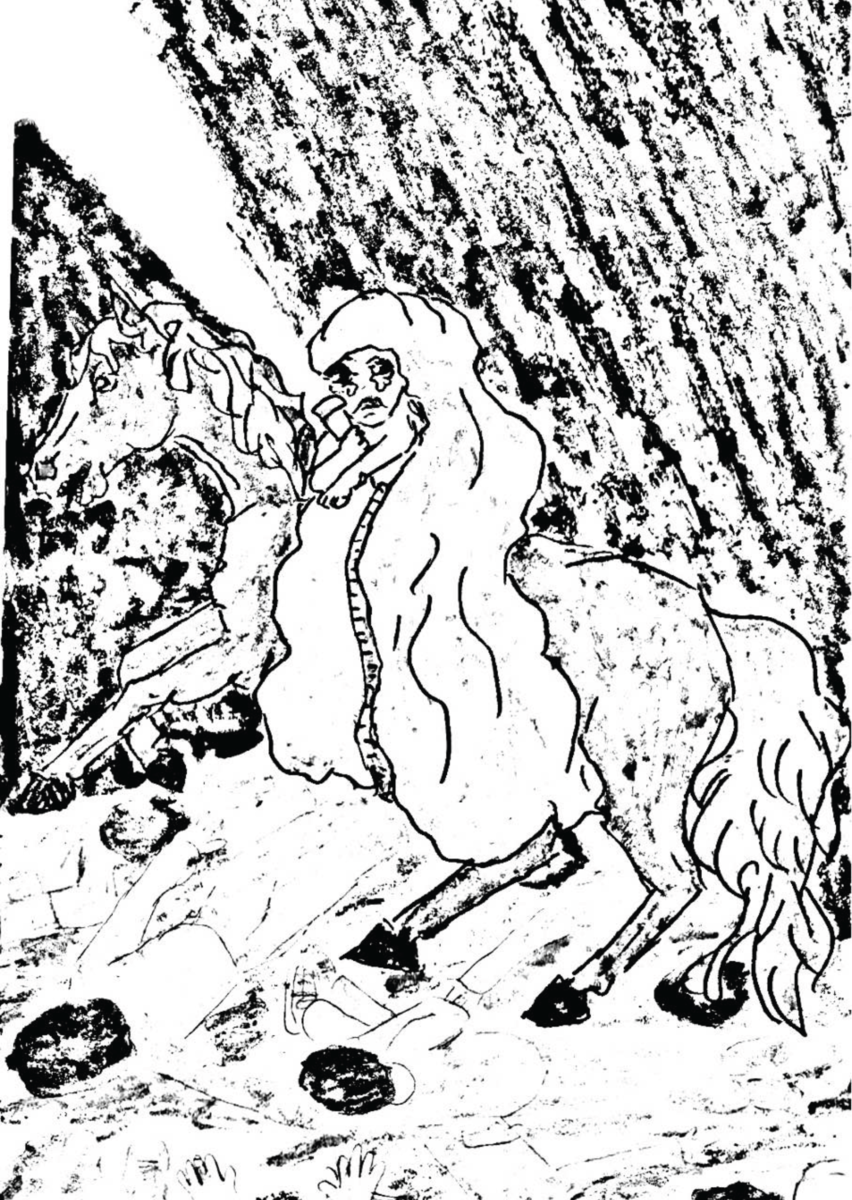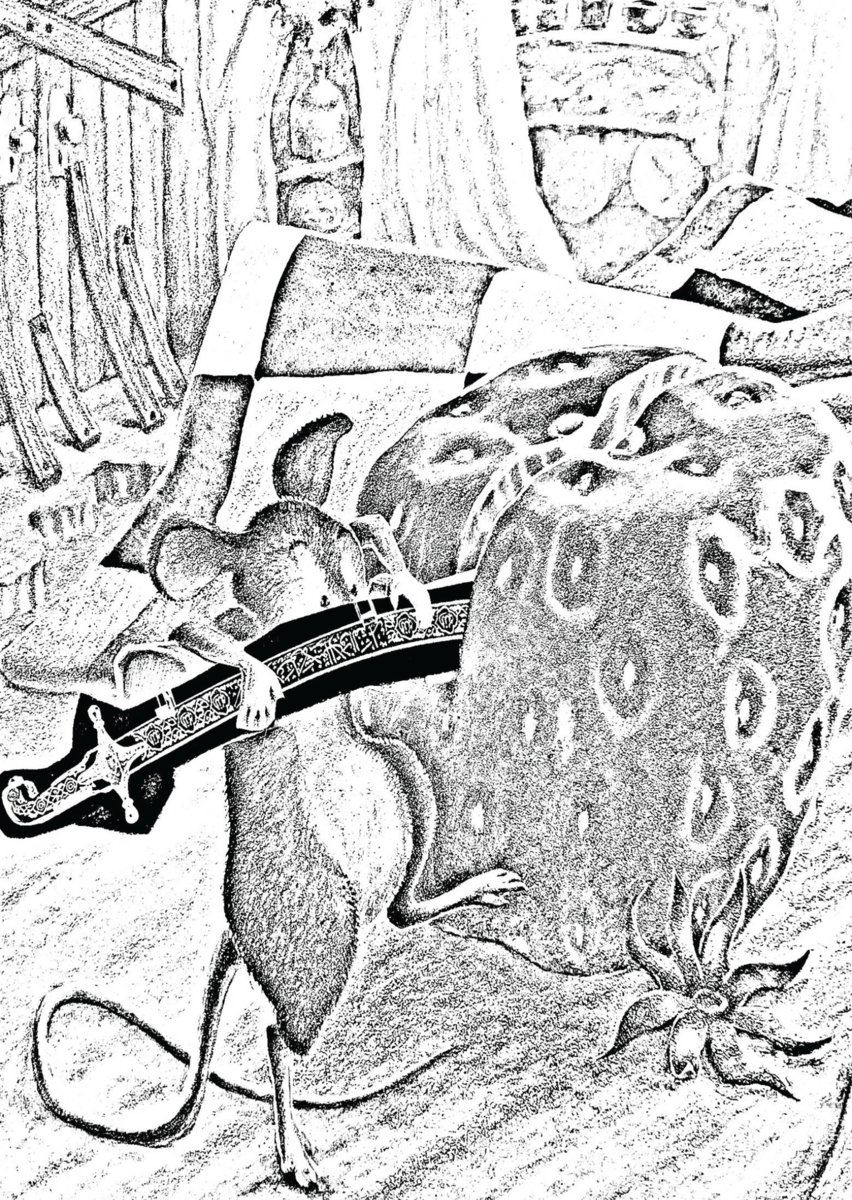
On a bookshelf in my office sits a small framed drawing of a shape resembling an amoeba, with differently sized dots and squiggles floating within its borders. Along the perimeter are words — “nightingale,” “melancholy,” “Grecian urn” — from the titles of poems by the English Romantic poet John Keats and little arrows pointing from them to the strange cellular forms of this delicate inked figure. This was a gift from Kaveh Akbar, sent to me after he read my 2021 book, Keats’s Odes: A Lover’s Discourse. It thrills me whenever I look at it, a reminder of his friendship, his generosity, and the special exuberance of his enthusiasms.
Akbar and I have a distinct bond, both of us being the children of Iranian-born fathers and white American mothers. We trade memories of growing up in the United States in the age of the Gulf Wars and the so-called War on Terror, when merely introducing oneself as Kaveh or Anahid was — and still is — enough to attract suspicion. We have another bond, too, through poetry, which is no less complex, no less embedded in histories of violence on any number of scales.
In two books of poetry, a chapbook, and an edited collection of spiritual verse, Akbar has traced an intricate, centuries-spanning genealogy of the poem and the poet. In Portrait of the Alcoholic and Calling a Wolf a Wolf (both 2017), he describes what it’s like to become “more a vessel of memories than a person,” a sort of Keatsian Negative Capability that worries the boundary between self and other, a single life and a shared inheritance. “We are given at birth,” he writes, “a pocket we fold into at death.” In Pilgrim Bell (2021), formal variation meets a newly amplified political ferocity, as Akbar’s lines turn sideways and upside-down, flip backwards or scatter across the page. There is fury here, at once lucid and wild:
There is no elegant way
to say this — people
with living hearts
that could fit in my chestwant to melt the city where I was born.
This is America, where a child’s T-shirt reads, “We Did It to Hiroshima, We Can Do It to Tehran!”
The painful absurdities and insoluble contradictions that attend the life of the immigrant provide the occasion for Akbar’s first novel, the extraordinary Martyr! A wildly original bildungsroman unlike any you’ve read, Martyr! is the story of Cyrus Shams, a young man born in Iran and raised in Indiana by his father. When Cyrus was an infant, his mother, Roya, was killed aboard Iran Air Flight 655, a passenger flight brought down by a pair of surface-to-air missiles fired by the USS Vincennes, an American navy cruiser, on July 3, 1988. (The downing of Flight 655 is not, alas, fiction.) Cyrus, now an alcoholic in recovery, is desperate for his own life to matter. He becomes obsessed with martyrdom, assembling a file on his computer called BOOKOFMARTYRS.docx, in which he writes things like:
Martyr. I want to scream it in an airport. I want to die killing the president. Ours and everyone’s. I want them all to have been right to fear me. Right to have killed my mother, to have ruined my father. I want to be worthy of the great terror my existence inspires.
Along the way, Cyrus is inspired by a performance artist named Orkideh who is dying of cancer and staging a performance at the Brooklyn Museum, where she invites people to speak to her as she toes the line between life and death.
Akbar and I spoke on Zoom about his uncompromising debut as a novelist; about the delights and ravages of poetry; and about being an artist of the diaspora.
—Anahid Nersessian
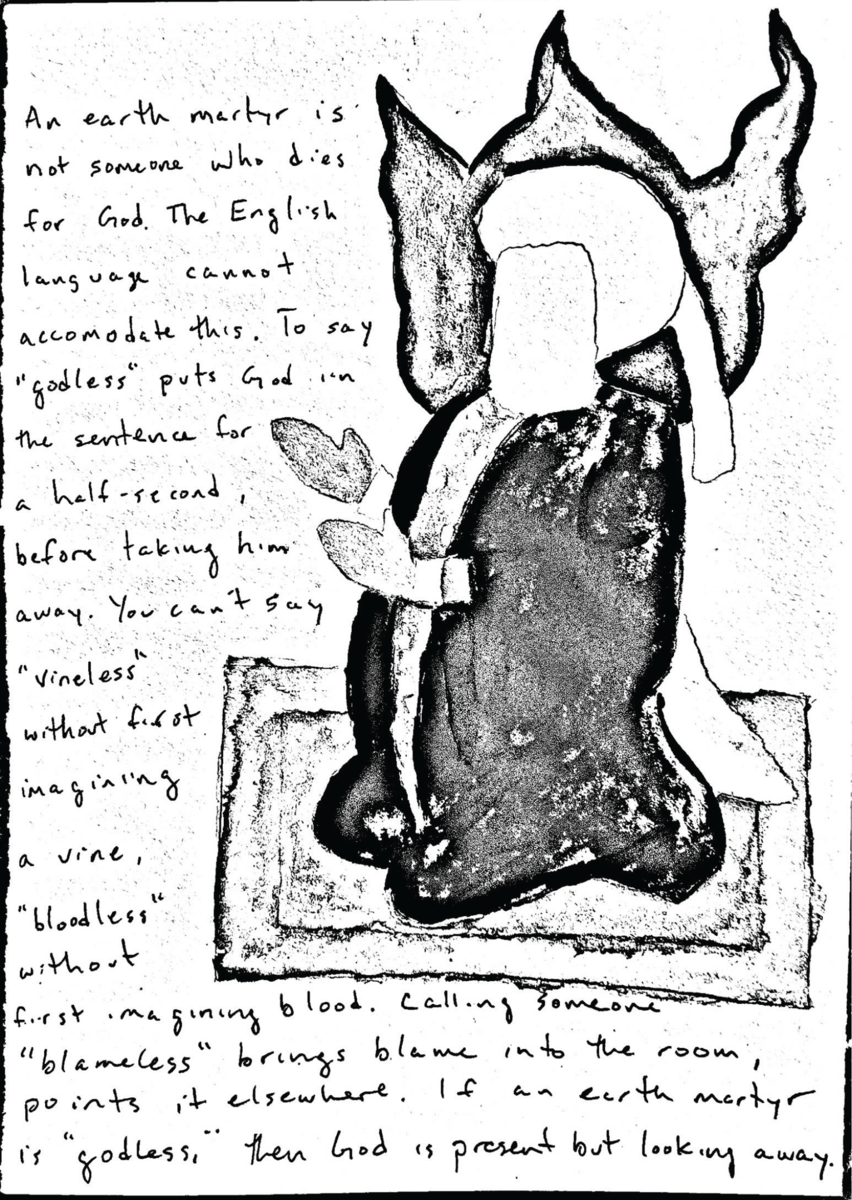
Anahid Nersessian: You’re known first and foremost as a poet, and now you’ve written your first novel, Martyr! I’m curious what the transition from writing poems to writing novels has been like for you and why you felt that the story told in Martyr! demanded a narrative frame rather than a lyric one.
Kaveh Akbar: I always had this idea of an Abramovic-esque art installation where one performs one’s own dying, where one just sits in the exhibit and dies with whoever wants to experience it with them. The only way I could play out this thought experiment was to write it. I didn’t want the book to be Tuesdays with Morrie, a series of conversations between this oracular, gnomic, dying woman and the acolyte sent to receive her wisdom. I wanted there to be an actual plot animating that, creating the stakes, a superstructure. The dialogue could essentially be poetry because in some sense poetry is just communication. But to create a sense of propulsivity I had to learn how to write a narrative.
The writer Tommy Orange and I traded pages every Friday for years. We started out writing poems together, and his poems started to get prosier, so mine got a little prosier to match, and then they turned into essays, and then there started to be character names, and so on. I recognized there was an opportunity to bring these projects together. It coincided with the Covid-19 quarantine, too, so while everyone else was reading King Lear or learning Esperanto or whatever, I took the opportunity to try and learn narrative. I have 57 degrees in poetry, but never took a day of a fiction workshop.
AN: Were there any poets’ novels that were particularly inspiring for you?
KA: I love Rilke’s novel [The Notebooks of Malte Laurids Brigge]. I love John Berryman’s Recovery, which is really just a memoir about how not to do recovery. Lore Segal is a fiction writer, but she has a novel called Lucinella — not to get too spicy, but it’s almost like a better Bell Jar. It’s about a young poet, and the final chapter is one I’ll never forget. But to me, Virginia Woolf’s The Waves is the ultimate poet’s novel. Theodore Roethke says, “The serious problems of life are never fully solved, but some states can be resolved rhythmically,” and that’s what happening in The Waves. The way that meaning accrues, the way Woolf’s propulsivity isn’t linear but centripetal. Each voice is a vector pointing you out of the ride, but because they’re all calibrated just so, you’re held aloft, orbiting a central hub. If I could write The Waves, I would never do anything else. If [Woolf] called that an epic poem, I don’t think anyone would bat an eyelash. I don’t know how it would be published today. I think also of Amos Tutuola’s The Palm-Wine Drinkard and Benjamín Labatut’s When We Cease to Understand the World.
My novel is fairly traditional in that it has a beginning, middle, and end and a character who goes on a journey. But in terms of thinking about the lyric potential of the novel form, those are a few books that I have thought a lot about. Often, when people refer to “lyric novels” or “poetic novels,” what they really mean is “a novel with nice sentences,” which condescends to both poetry and prose, as if lyric were just very pretty prose, as if the quality of prose could be measured by its proximity to verse.
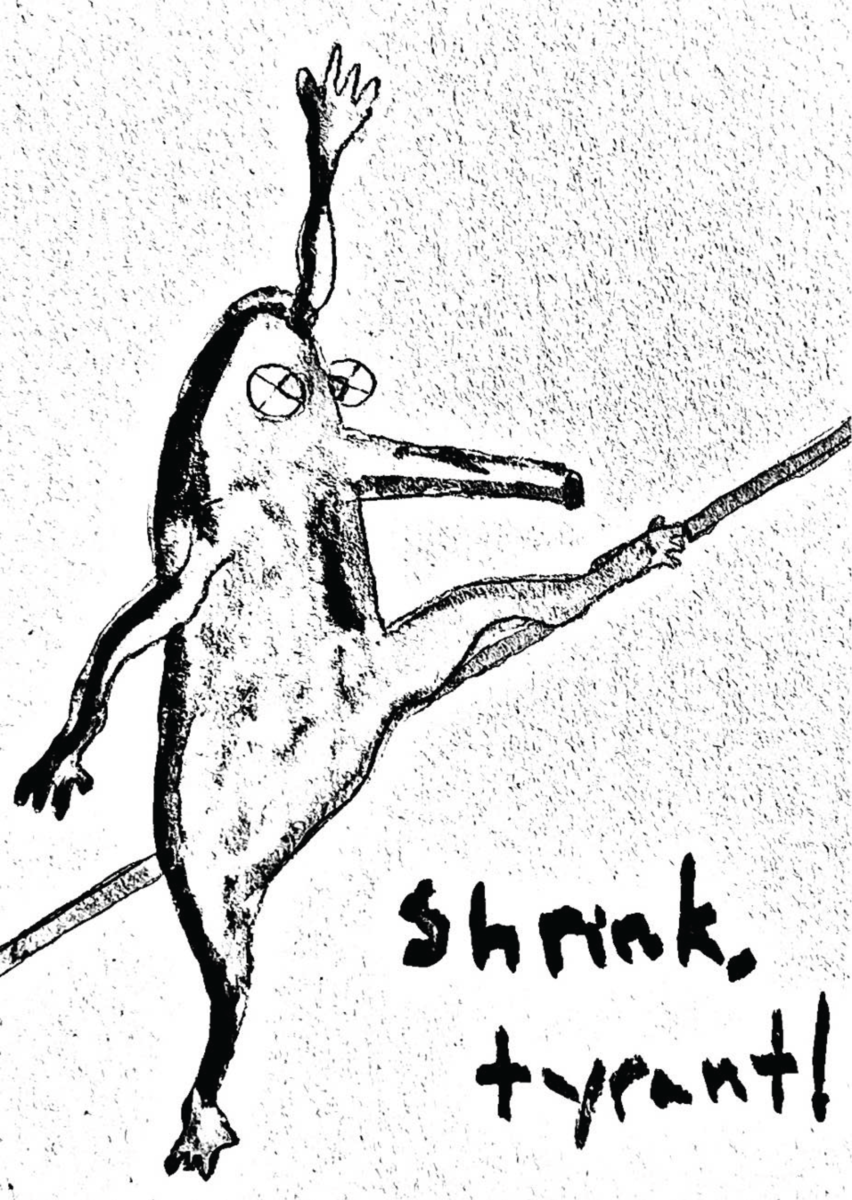
AN: I see a few parallels between Martyr! and The Waves, actually. Both involve crises of masculinity. I’m thinking about the unspoken love Woolf describes between the characters of Neville and Percival and the relationship between Cyrus and his friend Zee. Those are each dynamics in which people find themselves blocked by expectations around gender and desire. Unfortunately, that’s a reality that’s still recognizable to us almost a hundred years after The Waves.
KA: Something I think about a lot is the way that the hard scientific facts of the world are building blocks upon which we can improve, but the spiritual, psycho-ethical facts of the world — those we can record, but everyone has to learn them over and over again. You can’t just pick up where Hafez or Weil or whoever left off. I edited the anthology The Penguin Book of Spiritual Verse, and the great lesson to me in reading across 43 centuries of global literature was that everyone is just saying the same shit over and over and over. The earliest attributable author of our species is Enheduanna, a Sumerian priestess, and she’s writing about man’s corrosive impact on the Earth, and she’s writing about exile and being a refugee. We haven’t really improved on any of that. The soul of man, the heart of man, has not really made any sort of measurable progress. We keep hard-resetting into corrosiveness toward the planet and toward one other. So your idea that there’s this through line of men being blocked from being able to be wholly permeable to the affection and the love that they feel, I think that’s astute.
AN: If Persian literature has an exemplary tradition, it’s the lyric one, and within that it’s the love poem as an erotic-theological investigation. If American literature has an exemplary form, it’s probably the novel: The proverbial dream of every American writer is not to write the great American poem, but to write the great American novel. No one wants to write Song of Myself — everyone wants to write Gravity’s Rainbow.
KA: I’d rather write those 1,800 or whatever poems of Emily Dickinson’s than Gravity’s Rainbow.
AN: So you see where this question is going! While reading Martyr!, I wondered about the confrontation of these two traditions, one intimate and the other grand or grandiose. There’s that line at the beginning of Charles Olson’s Call Me Ishmael: “I take SPACE to be the central fact to man born in America … I spell it large because it comes large here. Large, and without mercy.” What happens to your lyrical sensibility when it goes large, when it’s amplified into the big space of the American novel?
KA: I love it. I love it! Every piece of art that I love can be discussed with regard to its straining against its medium — the way the emotional catalytic just dwarfs the medium’s ability to record it. I think what was sufficient for Hafez all those centuries ago and what has been sufficient for ye olde Ivy League American novelist couldn’t have anticipated the story of Martyr! Those mediums are capacious, but it’s the moments of strain that interest me. Brian Eno talks about listening to fuzzy, washed-out guitar or a blues singer’s voice cracking on a vinyl record as examples of an emotional event too momentous for the medium assigned to record it. That’s what I’m interested in in all art. Seeing Rodin’s thumbprints on the toes of Balzac, or the way that time marbles its way into Sappho, the fractures in the medium — the thing that tells me there was something here for which the technology of language or marble or vinyl record was insufficient. There was an emotional event here that eclipsed representation.
I hope very much that one of the senses one gets with Martyr! is a kind of sustained buzzing, as if there were something massive here being gestured toward that is unutterable, and that the novel is eighty thousand grains of flour thrown on the ghost of the thing.
I’m interested in what it means to feel rage thirty-five years later about an event that nobody in America even remembers, about the downing of Flight 655. Nobody in America is even aware of it, and yet, if it had happened to America instead of to Iran, Iran would’ve been turned to glass. That rage is the sort that emerges from a surfeit of compassion. It’s an ability to recognize the humanity of the harmed, to see more than just a number: 290 people killed. That’s totally abstract, but my mom was in Iran when the plane went down, and she was looking at these posters of the dead children. She was pregnant with me, and so the kid that was growing inside her was probably going to have a face like those faces on the posters.
That brings me a little bit closer to being able to imagine fully the humanity of the harmed. That rage is something that I wanted to animate in the book. Again, there’s no unit of language about which one can say, “This equals my rage.” You can only gesture and create metaphor and create symbols, fracturing the language to show the strain of the rage or show the strain of the love or the strain of the futurelessness that comes with a mass-death event like that.
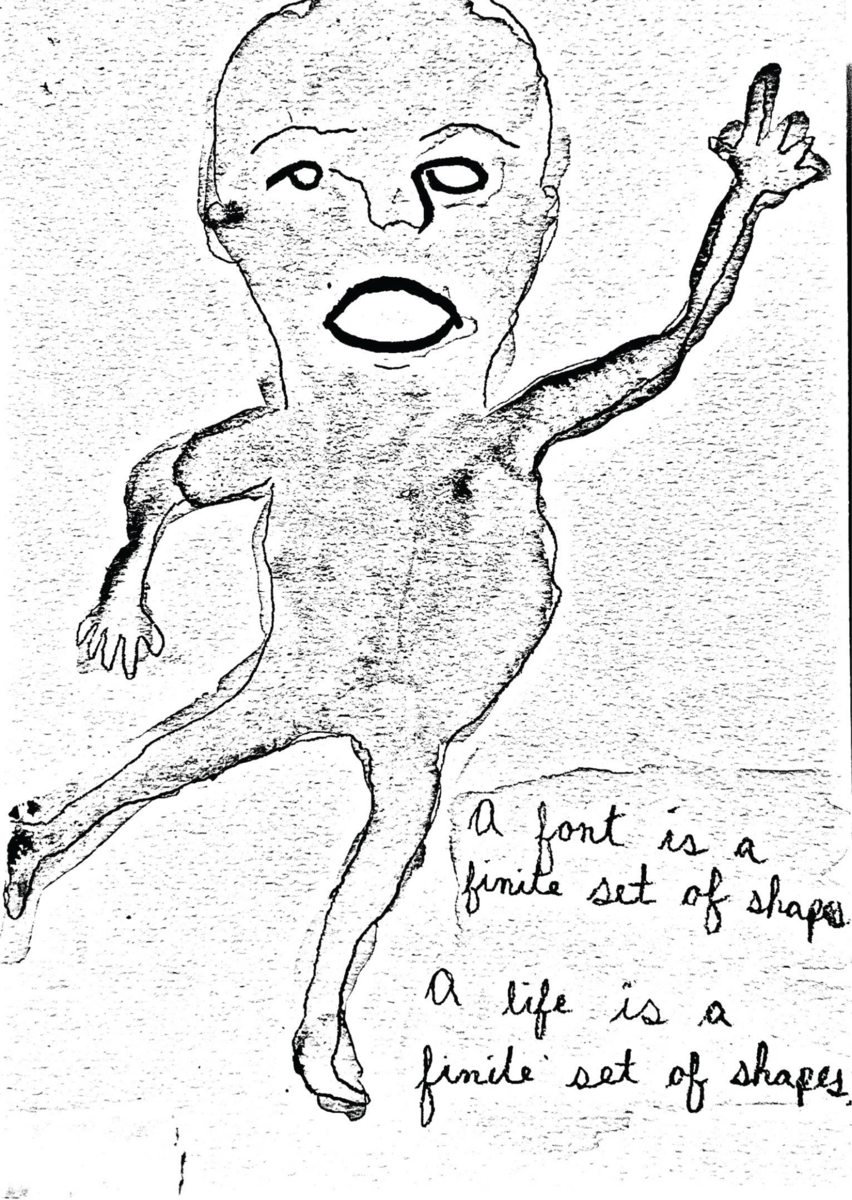
AN: There’s a moment in Martyr! where Cyrus is reprimanded for bringing up what it’s like to experience racism in America during his AA meetings because racism is somehow irrelevant to what’s happening in the room. That moment really struck me because it’s such a skilled distillation of the ideology of addiction treatment and what might be some of its oversights or lapses. On the one hand, it’s true that addicts will do anything to deflect attention from their addiction. On the other, how can we ever separate addiction from life experience, and how can we separate life experience from the reality of being marked as different — of having, as you just said, a face that looks like the faces of those killed with impunity?
KA: I’m glad that moment struck you because it’s a really important moment for me, too, as someone who is Iranian and in recovery meetings. Demographically, if you look at recovery meetings, they’re mostly white. They’re mostly white and predominantly male. There are certainly POC recovery groups and queer recovery groups and women’s only ones, but by and large the cross section looks like one thing. So many of the years of my active addiction involved rationalizing almost anything: I had been torn from the land of my birth and made to suffer such extremes — the universe owed me whatever I wanted from it, you know what I mean? That’s such a big part of my story. But then, if I’m like, “Damn, fuck George Bush,” and there’s a dude in the room who’s a big fucking cowboy-hat-wearing, Bush-voting sort of dude or whatever … I don’t want to be an impediment to that person’s recovery, either. I don’t want him to feel like he can’t come to that room because I’m talking about dangling chads.
It’s hard. To this day, it’s hard. To get a little spicy: Jenna Bush has this massive fucking book club. Everyone just goes on and yuks it up with this war-criminal heiress who’s sat there because her last name ties her to wealth that came from the mass murder of hundreds of thousands of civilians. That’s why she’s sat there, and she’s laughing with some of our greatest authors. I’m not blaming the authors. Everyone is moving through their own ethical calculus, and there’s no ethical consumption under capitalism — of course mature adults understand this. But it is excruciating to be the Iranian guy quoting oil-war statistics in 2024. I want Ryan Seacrest to be like, “Hey, isn’t it weird this war-criminal heiress is on our TV culturally laundering her family’s atrocities?” I wouldn’t have to be the shrill Iranian man saying, “Wait a minute.” I don’t even mean to be pointing at that one thing. This is endemic. I know that I’m also a six-four straight-passing cis man, so there are planes of privilege that I’m occupying, of course. But it makes me feel insane sometimes, like I’m being gaslit by the world: Am I misremembering? Is this a different Bush?
AN: I’m going to tell you a story. In 2008, during the Hillary-Obama primary, I was living in New York, and I was asked on a date by a guy who worked at this lefty art magazine with a bunch of my friends — so, you know, he’d been vetted. We went for coffee, and everything about this man is signaling that he’s progressive, he’s hip, he’s with it, right? We get to talking about the election, and suddenly he says, “I really hope Hillary wins so that we can finally bomb the shit out of Iran.”
KA: [Bursts out laughing.]
AN: That’s what I did! I burst out laughing! Partly because I was so shocked, and partly I guess as a learned response so as to not get angry or make trouble. So he looked at me very sternly and said, “I’m serious.” It was so stunning, and I realized how even people who think of themselves as incredibly politically literate and sophisticated have an instinctive attachment to empire and to the idea of America as world cop. The other thing is, when you’re from a place like Iran, a lot of white Americans will assume that you’re here, that your family’s here because you’re effectively refugees from the regime. That may not be untrue. But this guy’s expectation that I would somehow want all of Iran to — in your words — be turned to glass is exemplary of this mentality, as if the world were a video game and all we needed to do was obliterate the next target.
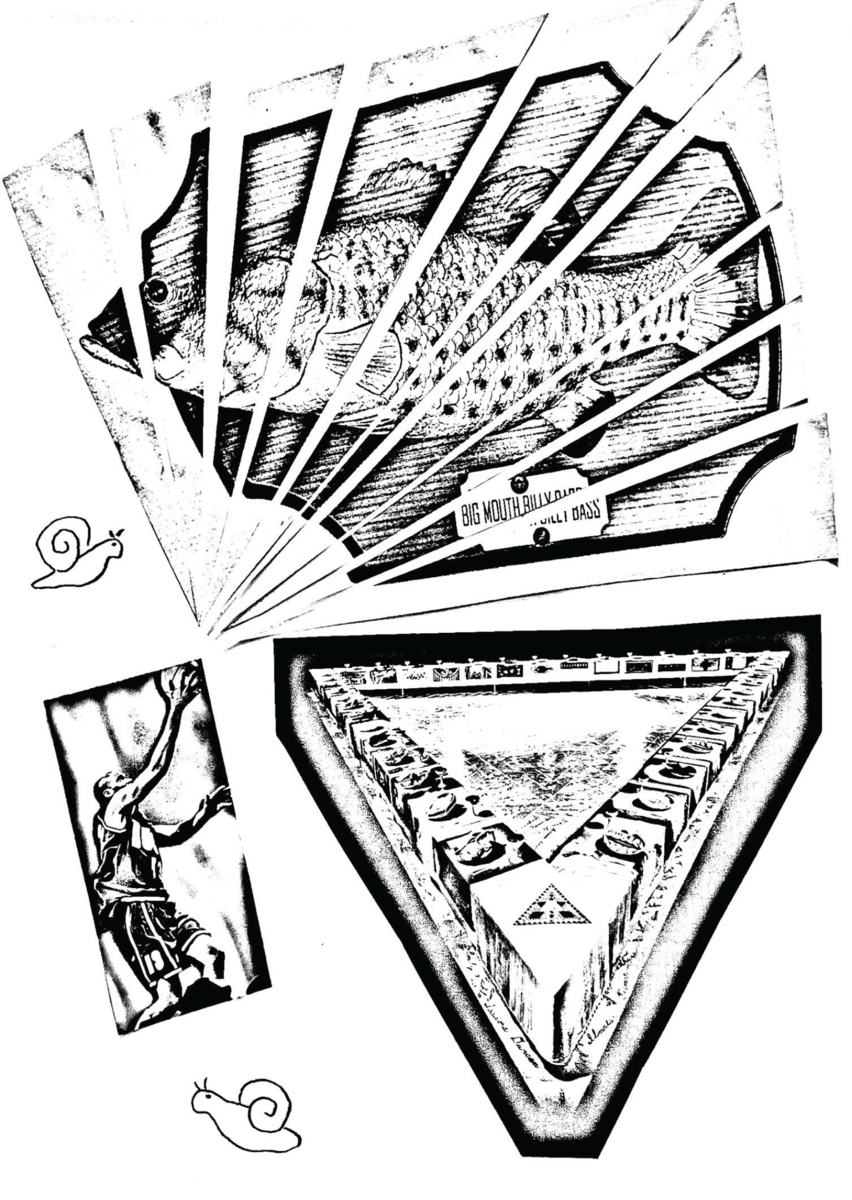
KA: It also ties into the broader ethical infantilization of the Zeitgeist. I’m talking about literary fiction. I’m talking about cinema. There’s a reason that the Marvel movie is the dominant cultural artifact of our era. There’s a status quo, then there’s this interloper who comes in and disrupts the status quo, then Captain America kicks him back to the moon or wherever, and then we’re back to the status quo, which is valorized and mythologized, and we all say, “Fuck yeah, back to the status quo.” This is a fundamentally regressive, conservative position, and yet the rhetorical hygienics of social media play into this too in the idea that there’s a good take or a good position and a bad take or a bad position. Fundamentally, one of the things I was really, really interested in with Martyr! was saying, “It’s fucked over there, but it’s fucked over here, too.” The Iraqi poet, journalist, and novelist Dunya Mikhail says, “Censorship in America is implicit and it precedes speech, as opposed to in Iraq, where censorship is explicit and it follows speech.” It’s not like there’s a Narnia nation where everything is going well.
Since writing the book, I’ve been thinking about the gulf between moral outrage and mortal terror and how comfortable moral outrage looks from the vantage point of mortal terror, right? During the quarantine, I had relatives die in Iran. I had relatives in extreme lockdown conditions that made what was going on here … Their kids didn’t see the sun for months at a time. The quarantine was so much worse there because of the the corruption of the Iranian regime and the US sanctions, which blocked the arrival of ventilators and, later, vaccines. Here, I was among the first Americans to get vaccinated because I’m an educator, and so I was never in any sort of mortal fear, but I was certainly morally outraged. There is a part of me that thinks anything short of giving away all my clothes and kidnapping a conservative Supreme Court justice is an indictment of my comfort. I’m probably not going to do either of those things anytime soon. I lack the moral courage. I don’t know. It just seems like the time for tithing has passed, the time for saying, “I’ll give 10 percent of my hours and money this week.” This leads me back to Cyrus.
AN: When I spoke to one of your creative-writing classes on Zoom, I remember you helpfully rephrasing a series of tangled sentences that had come out of my mouth as “The mistake is in thinking that the worst thing that has ever happened to you is the most interesting thing that’s ever happened to you.” We talked a lot that day about the demand made disproportionately on people of color, on women, on anybody who finds themselves at the margins of literary culture, to pull up and deliver trauma to the public. Martyr!, although it has many things that are not traumatic in it, is nonetheless a book framed by trauma, a book about the worst things that can happen to a person and how one lives on, not so much in their aftermath as alongside them, because one of its main ideas is that these moments of massive historical rupture are never closed. They can’t be closed, full stop, particularly if they’re never even acknowledged as having happened. So Martyr!, of necessity, is a book about being perennially post-traumatic.
KA: I mean, we’ve only been a discrete species for fifty thousand years, right? An evolutionarily insignificant amount of time. And so when we are presented with endless images of the state’s murder of unarmed civilians, and these headlines of death every day, whether in the form of traumatic violent death or natural disasters exacerbated by man-made global ecological crises, our brains haven’t evolved enough to differentiate that from the thought: A member of my tribe, a member of my circle, has been hurt. There’s no evolutionary framework for looking at a video of the state murdering an unarmed man and thinking, Oh, well, that was just a video. Or, Oh, that was somewhere else. It enters you and touches the same brain that evolved to try to spot the berries in the bush and the scary lion. Surely there’s no person who isn’t in a sort of perpetual state of post-traumatic-stress disorder. If there is a person untouched by the violence of empire, I haven’t met them.
I think Martyr! is interested in people who live past their peaks. Cyrus’s entire life was spent at 11 and then at negative 11 on the emotional spectrum. Now, in sobriety, everything is muted, between 5 and negative 5, and he’s like, Well, fuck, what do I do with this? Figuring out what to make of having lived past what you perceive to be your peak is something I’m very interested in. There’s a biographical correlation Cyrus and I share as two people who are Iranian poets and in recovery. I can relate to the sense of having lived past the 11s and experiencing most of my life now in between 5 and negative 5.
My subject position limits the ways that I can be useful, too. If I were to do something extreme, the headline would be “Iranian Extremist Kidnaps Brett Kavanaugh.” Not “A Principled American Leftist Makes a Measured Decision for the Good of His Species.” Because of the way the left venerates people like John Brown or the Tank Man, we’re all sitting here waiting for the tank to roll down our street so that we can go gallantly step out in front of it. I live in Iowa City, Iowa, I’m going to be waiting a minute if I’m just sitting on my hands doing nothing until the tank rolls down Dubuque Street.
The actual list of actions available to me moment to moment is so unsexy and un-Instagrammable. Buying tampons and socks and bringing them to the mission downtown is not something I can really take a picture of and brag to my friends about having done. Or calling a newcomer in sobriety and just listening to him bitch about his mom for two hours. But those are measurable actions I can take, things that move the needle, however incrementally, on a day-by-day basis. I want to throw myself in front of the tank! Of course! But what life has put before me is a menu of just these totally and utterly, utterly quotidian, frustratingly mundane actions.
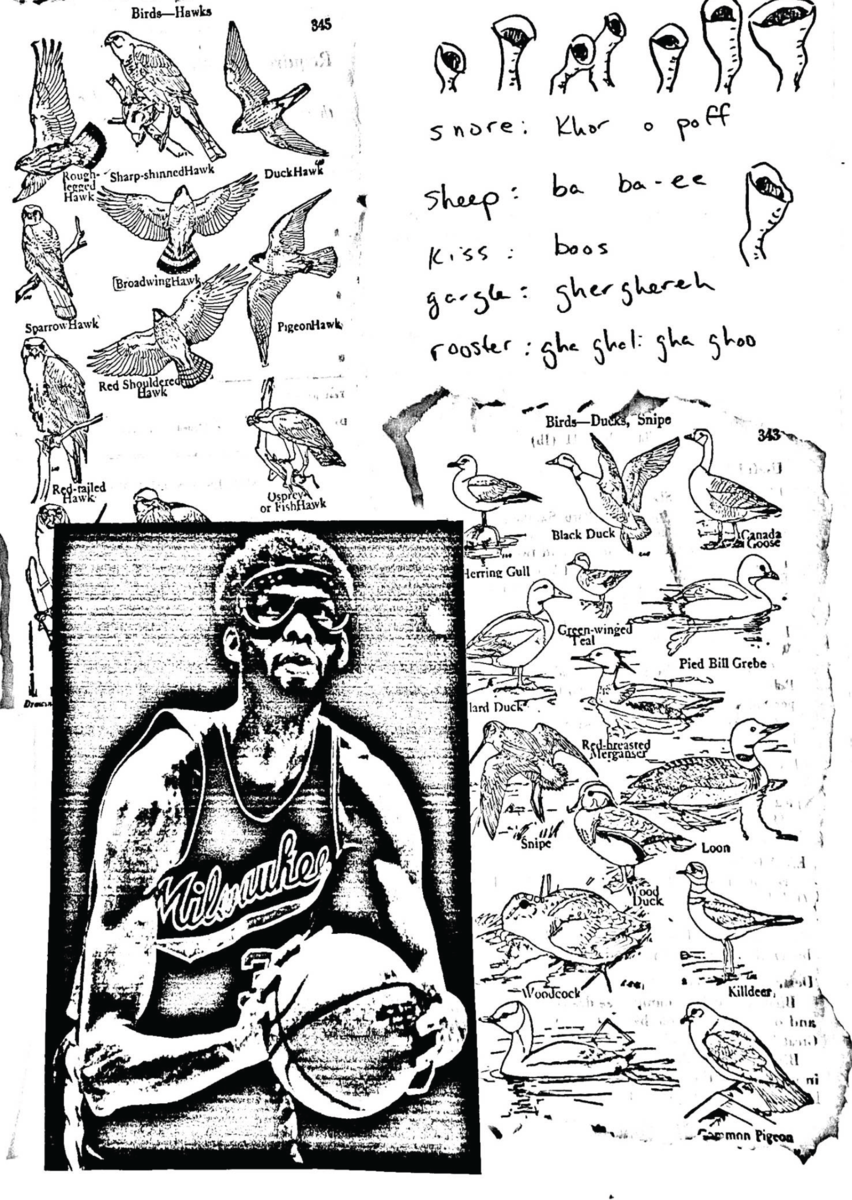
AN: There are some lines in Portrait of the Alcoholic that I really love. They’re from “Unburnable the Cold is Flooding our Lives”: “I blame my culture[,] I blame everyone but myself / intent arrives like a call to prayer and is as easy to dismiss.” Cyrus is somebody who is always asking for his intent to arrive from outside himself. He’s always asking for a sign, to be moved by some greater force, and that reminds me of the image of the tank appearing down the street. If the tank arrived on Dubuque Street, it would be like the voice of God. It would be like an angel appearing to you and telling you what it is that you had to do. In the absence of any kind of sign from outside, in the absence of the tank, the actions need to come from within.
KA: As a person in recovery, I am deeply dubious of my self-will, and I’ve more or less learned to smile politely at the first thought that comes into my head and then try to focus on the second thought. My ego sounds so much like my ethics, and there’s no shortage of people in the world who are very eager to tell us which is which. A lot of people are desperate right now for a fight they can win, which is understandable because Monsanto or Trump don’t give a shit what you’re tweeting about. I’m very permeable to the possibility that I’ve done wrong. If someone says, “Hey, you did bad here,” I say, “All right, tell me more. What can we do?” That’s a dangerous position to be in because I’m slowly learning that the world at large can’t really be trusted with that responsibility. This is an ongoing calibration for me, figuring out what is will and what is ego. Sometimes the two align. The sincere ambition of my poems is to find the people in the world for whom they might be useful. My ego wants to be Keats. I want everyone memorizing my poems and talking about what a beautiful sad sack I was.
AN: Keats has this idea he calls Negative Capability, whereby you enter helplessly into the identity of others. He describes it as being “annihilated” by others’ presence. Negative Capability is often seized upon as the ideal attitude for a poet, but it seems to me also an inevitable condition for an immigrant. In my own life, I’ve felt profoundly the requirement of self-effacement, being amenable, being of use to people in a way that’s nonthreatening, and all of that has marked my experience as a writer, a teacher, a woman, as everything really.
KA: Yes, the way that one is chiseled into the master key that fits into all of those keyholes. What I have wanted most as an addict in my life is to be obliterated. Even still. I’ve lost my privileges to all my favorite highs, but I still turn my music up too loud and drive too fast. Anything that will slow down or jettison me out of my higher brain is a button that I’ll push until it stops working. Carrying that impulse to a zenith is something that all addicts have robust experience with.
I wanted to say that a not insignificant part of the American literary appetite comes from a desire to inoculate oneself against complicity by reading from a safe distance an account of harm and saying, “Okay, well, I’ve read the book about that, and so now I’m one of the good ones.” Putting oneself in safe proximity to state violence without actually risking anything. If Martyr! were just filled with accounts of how mean TSA is to me every time I go through security — I have those stories. But to share them in a creative work would be venting a reader’s neoliberal guilt that I’m not particularly interested in venting. I’m interested in the question of what that guilt might exert itself on if it were allowed to fester.
AN: Do you think of yourself as an artist of the Iranian diaspora, and what does that mean to you? What could it mean?
KA: I was born in Iran. My whole life, I’ve been indelibly inflected by the algorithms of Iranian art and Iranian culture and Iranian conversation. My first language was Farsi, and if we’re to believe psycholinguistics, that means that my brain was terraformed for one way of thinking, that all the channels and thruways in my mind are made for it, even though the language of my art is a different language. There are probably useful defamiliarizations and illuminating complications that occur as a result, but I don’t know. My nose is pressed up to the mural. I can’t see it from where I stand. I’m trying to describe a cloud from inside the cloud, and you have to be on the ground to see that it’s a giraffe.
